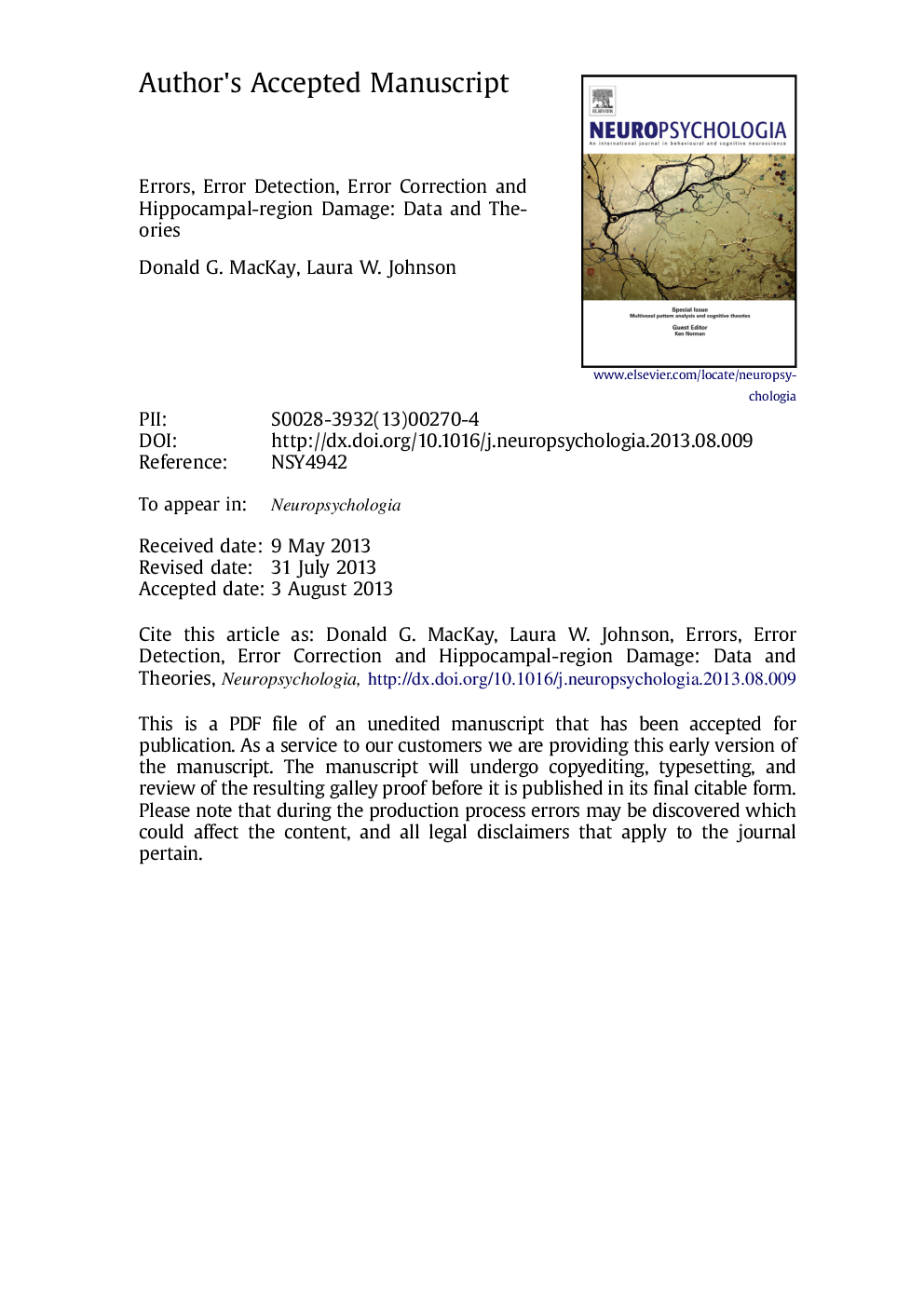| Article ID | Journal | Published Year | Pages | File Type |
|---|---|---|---|---|
| 10464707 | Neuropsychologia | 2013 | 73 Pages |
Abstract
This review and perspective article outlines 15 observational constraints on theories of errors, error detection, and error correction, and their relation to hippocampal-region (HR) damage. The core observations come from 10 studies with H.M., an amnesic with cerebellar and HR damage but virtually no neocortical damage. Three studies examined the detection of errors planted in visual scenes (e.g., a bird flying in a fish bowl in a school classroom) and sentences (e.g., I helped themselves to the birthday cake). In all three experiments, H.M. detected reliably fewer errors than carefully matched memory-normal controls. Other studies examined the detection and correction of self-produced errors, with controls for comprehension of the instructions, impaired visual acuity, temporal factors, motoric slowing, forgetting, excessive memory load, lack of motivation, and deficits in visual scanning or attention. In these studies, H.M. corrected reliably fewer errors than memory-normal and cerebellar controls, and his uncorrected errors in speech, object naming, and reading aloud exhibited two consistent features: omission and anomaly. For example, in sentence production tasks, H.M. omitted one or more words in uncorrected encoding errors that rendered his sentences anomalous (incoherent, incomplete, or ungrammatical) reliably more often than controls. Besides explaining these core findings, the theoretical principles discussed here explain H.M.â²s retrograde amnesia for once familiar episodic and semantic information; his anterograde amnesia for novel information; his deficits in visual cognition, sentence comprehension, sentence production, sentence reading, and object naming; and effects of aging on his ability to read isolated low frequency words aloud. These theoretical principles also explain a wide range of other data on error detection and correction and generate new predictions for future test.
Related Topics
Life Sciences
Neuroscience
Behavioral Neuroscience
Authors
Donald G. MacKay, Laura W. Johnson,
